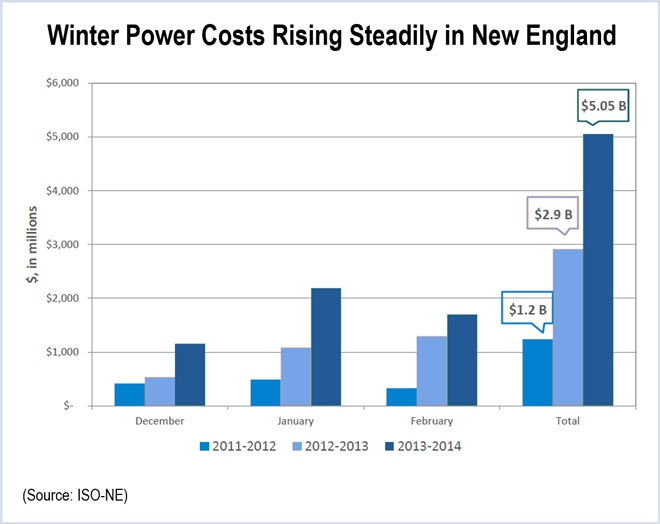By William Opalka
ISO-NE must find a market-based solution for ensuring adequate generation by next winter, the Federal Energy Regulatory Commission said last week in a clarification of a previous order.
FERC’s Jan. 20 order (ER14-2407) sided with the region’s generators, who contended ISO-NE was not acting with the urgency the commission intended in a Sept. 9 ruling, in which it approved the second year of the RTO’s Winter Reliability Program.
The program provides dual-fuel capable generators with out-of-market incentives to ensure they can switch to oil when cold weather stresses natural gas supplies. The RTO had previously won FERC approval of a long-term, market-based reliability plan, the Pay-for-Performance program, which will result in a two-settlement process for capacity resources starting in 2018 (ER14-1050).
“We’ll continue with the stakeholder process, which we began a couple of months ago. We’re still assessing the impact of this order, in light of the work that’s been done so far,” ISO-NE spokeswoman Marcia Blomberg. “A jump-ball filing [reflecting a lack of consensus among stakeholders] is theoretically a possible outcome of a stakeholder process on any proposal but, as I said, it’s premature to speculate on the possible outcomes of this stakeholder process.”
The Sept. 9 order directed ISO-NE to start a stakeholder process by Jan. 1, 2015, to develop a market-based solution before Pay-for-Performance takes effect.
Generators: No More ‘Band-Aids’
The RTO began the process last fall, filing a schedule of New England Power Pool stakeholder meetings on Oct. 8, but it made no promises that it would result in an interim market-based solution.
The New England Power Generators Association responded Oct. 9 with a filing complaining that the RTO was misinterpreting FERC’s directive.
“ISO-NE is interpreting the commission’s order to allow ISO-NE to continue proposing out-of-market fixes for the three consecutive winters after winter 2014/2015,” the group wrote. “… The commission’s order should not be read to condone three additional years … of seasonal, out-of-market Band-Aids in lieu of market rule changes based on the competitive market principles necessary to efficiently price system reliability.”
It asked the commission to clarify that the September order required ISO-NE to implement a market-based solution for 2015/16, saying it wanted “to avoid potentially wasting valuable NEPOOL stakeholder meeting time on out-of-market solutions, if any, proposed by ISO-NE.”
ISO-NE: No Consensus
In a Dec. 8 progress report to FERC, ISO-NE said that in response to “concerns that the winter reliability programs to date have not been resource-neutral and market-based, ISO-NE has committed to have a dialogue with stakeholders on current and alternative objectives for winter reliability programs, and the feasibility of designing and implementing a market-based solution for future winters.”
But the RTO said that at a November meeting of the NEPOOL Market Committee, stakeholders were split over what alternatives they should pursue for future winters, with some calling for the development of “price formation projects,” others supporting continuation of the existing winter program, and others for a market-based solution.
“In short, no consensus emerged,” the RTO said, adding that it would discuss the issue again at future Markets Committee meetings.
In its Jan. 20 order, FERC agreed with the generators.
“The commission intended that ISO-NE would determine whether a winter reliability solution is necessary for the 2015-2016 winter and future winters and, if so, develop an appropriate market-based solution through the stakeholder process that can be implemented beginning with the 2015-2016 winter,” FERC wrote. “While the two-settlement capacity market design could help address winter reliability concerns in the future, that design will not be fully implemented until the 2018-2019 Capacity Commitment Period.”



